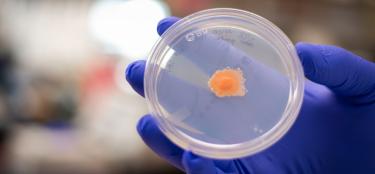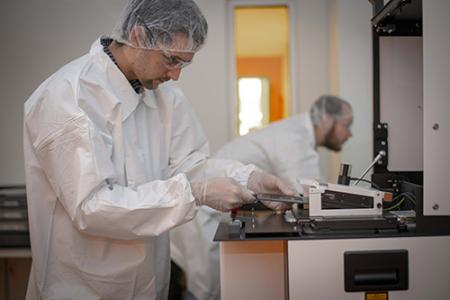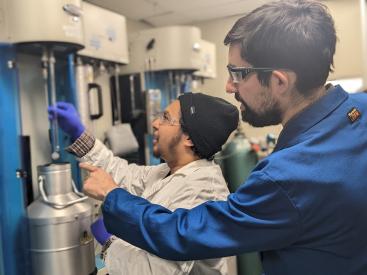Life Sciences & Biotechnology

Driving the future of life sciences fundamental and applied research
Research in Life Sciences and Biotechnology at WPI stands at the intersection of the life sciences, the physical and computer sciences, and engineering. Our researchers are creating new routes to drug discovery and development, exploring the fundamental mechanisms of life to expand knowledge about human diseases and how to treat them. Laboratory discoveries combined with computational analysis are illuminating the workings of everything from chromosomes to viruses, fungi, and bacteria.
Research at WPI
Facilities

Life Sciences and Bioengineering Center
Interdisciplinary research teams go beyond traditional academic department boundaries and coalesce around ideas to approach complex problems from multiple perspectives.

BETC
The Biomanufacturing Education and Training Center (BETC) is a 10,000 square-foot, pilot-scale lab facility that offers hands-on training and customized workforce development solutions for forward-thinking biotechnology companies.

PracticePoint
PracticePoint is a membership-based facility for health technology research, development, and testing. PracticePoint includes a fully instrumented living space, a patient care suite, an MRI imaging center, and an operating room co-located with advanced manufacturing capabilities.

LEAP
The Lab for Education and Application Prototypes is a partnership between WPI and Quinsigamond Community College. LEAP @ WPI/QCC houses equipment and facilities needed to prototype integrated photonics devices and develop the workforce that will manufacture them.

CERES
The Cell Engineering Research Equipment Suite (CERES) is a fee-for-use facility for academic and industry researchers. CERES provides instruments for quantitative analysis of engineered cells.
The WPI Expert Database
Meet our WPI experts and senior administrators who are leaders in a wide range of fields, and are available to offer ideas, opinions, analysis, and commentary. From issues facing higher education to current events, trending topics, and breaking news, our WPI profiles contain detailed information to help members of the media find the most appropriate person for their needs.



